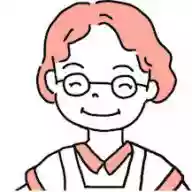[For Seniors] A Collection of Recommended Spring Songs for People in Their 80s
For those in their 80s looking for songs perfect for spring.
In this article, we’ll introduce recommended songs that are just right for the season.
From the postwar era, we’ve gathered mainly cheerful tunes that lift your spirits.
Some of you may remember hearing them on the radio.
When singing in a group at a senior facility, adding handclaps helps create a sense of unity.
Also, the shoka (school songs) composed in the Meiji and Taisho periods feature beautifully expressive lyrics that vividly evoke springtime scenes.
By all means, try singing them while recalling the landscapes of your hometown.
- [For Seniors] Recommended Spring Songs for People in Their 70s: A Collection of Nostalgic Spring Tunes
- Lively songs recommended for people in their 80s: A collection of nostalgic enka and kayōkyoku
- [For Seniors] Recommended spring songs for people in their 90s: A collection of Shōwa-era spring tunes
- Recommended youth songs for people in their 80s: A collection of nostalgic classics
- For seniors: Recommended youthful songs for people in their 90s. A collection of classic Showa-era hits.
- [Recommended for people in their 70s] Songs that really move you. Beloved classic Japanese hits of the past.
- A collection of cheerful, uplifting songs recommended for women in their 80s—fun, bright tunes to sing along to
- Energizing songs recommended for men in their 80s: A collection of nostalgic tracks that give you strength
- [For Seniors] Heartwarming Winter Classics: A Cozy Moment with Nostalgic Kayōkyoku and Traditional Songs
- Recommended winter songs for people in their 90s: A collection of Showa-era winter tracks
- Lively songs recommended for people in their 90s—fun songs for everyone to listen to and sing together.
- Great songs recommended for people in their 80s: a collection of tracks with lyrics that touch the heart
- [For Seniors in Their 80s] Recommended Summer Songs: From Enka and School Songs to Folk Songs
[For Seniors] Recommended Spring Songs for People in Their 80s (21–30)
Flowers will bloom.

This song was planned and produced as the theme song for NHK’s Great East Japan Earthquake Project, with lyrics by film director Shunji Iwai from Sendai.
For those who experienced the disaster, it may bring back difficult memories, and it also served as a source of support during the recovery.
There is also a video from the “Flowers Will Bloom Project,” featuring singers, entertainers, and athletes connected to Miyagi, Fukushima, and Iwate Prefectures.
With its easy-to-understand melody and singable chorus, it’s fun for everyone to sing together.
It’s also recommended as a choral piece for events.
Always keep your dreamsYukio Hashi / Sayuri Yoshinaga

Because it’s used as an insert song in NHK’s morning drama series “Amachan,” in SoftBank commercials, and in various other contexts, it hardly feels like an old tune.
Of course, for older listeners it’s famous as a duet by Yukio Hashi and Sayuri Yoshinaga.
It even won the Japan Record Award, was performed on the Red and White Song Battle, and inspired a film—what we’d now call a mega-viral hit! Just hearing the intro will bring back fond memories of days gone by.
It’s also a great choice for karaoke with someone special!
The Days of Rainbows and SneakersTulip

It is a classic song that leaves a strong impression with its delicate portrayal of youthful love and transience.
The scene of two people embracing in rain-soaked sweatshirts and the tender sentiment of cherishing a pair of sneakers are depicted with gentle warmth.
The lyrics symbolically express the disconnect between a man and a woman, a sudden farewell, and the immaturity of not yet being able to become an adult, all imbued with the bittersweet ache of youth.
Released in 1979 by Tulip, the song drew attention on TV programs such as The Best Ten and Yoru no Hit Studio, gaining popularity as a piece in which folk and pop are beautifully harmonized.
Kazuo Zaitsu’s warm vocals and the beautiful melody will surely comfort those who wish to heal the pain of heartbreak or look back on their cherished memories.
12th graderKazuo Funaki

This lyrical song is filled with memories of youth, and Kazuo Funaki’s fresh vocals in a student uniform make a striking impression.
Set to a march-like, approachable melody, it gently recounts the joys and loneliness of school life and the partings with friends.
After its release in June 1963, the work achieved astonishing sales and won the New Artist Award at that year’s Japan Record Awards.
It was also adapted into a film, starring Kazuo Funaki himself, with scenes shot in his hometown of Ichinomiya City, Aichi Prefecture.
It’s a song meant to be hummed together as you reminisce about nostalgic youthful days.
Let’s sing along with cheerful handclaps.
scarecrowMasashi Sada

This is a song that conveys feelings for one’s hometown, depicting the scenery of the Showa-era countryside with a quiet, gentle melody.
In Masashi Sada’s tender storytelling style, it likens thoughts for younger siblings living alone in the city to the figure of a scarecrow standing in the snow.
Released in November 1977, it is also included on albums such as “Watakushishu” and “Masashi Sada Best.” It’s a wonderful song that older listeners can find familiar, inviting everyone to sing together while fondly recalling family members living far away.
For recreation in care facilities, we hope people will enjoy it by clapping along slowly to the performance.
A rose has bloomed.Mike Maki

The classic song that sings of roses blooming in a heartwarming garden was released in 1966 by Mike Maki.
It’s a folk song that, while simple, conveys a deep sense of affection.
Its gentle melody—like flowers blooming in a garden where you can feel the transition from spring to summer—is also part of its charm.
This work was Mike Maki’s debut song, included on “Bara ga Saita/Mike Maki no Folk Album,” and since September 2016 it has also been used as the departure melody at JR East’s Ishioka Station on the Joban Line.
The tender vocals and melody are perfect for music recreation time with seniors.
Along with nostalgic memories, it offers a soothing, peaceful moment.
loquatLyrics by Michio Mado / Music by Shigeru Isobe

On a calm, sunny day, why not imagine fruit ripening in a lush green garden? Created by Michio Mado and Shigeru Isobe, this piece is a gentle-toned children’s song first released in July 1953.
Its soothing melody and lyrics vividly evoke fruit growing beneath large leaves, basking in the sunlight.
It’s a perfect song to share with older adults, spending a moment together immersed in nostalgic memories of early summer.
As the gentle music flows, why not gaze at the greenery outside the window and enjoy a leisurely time?






